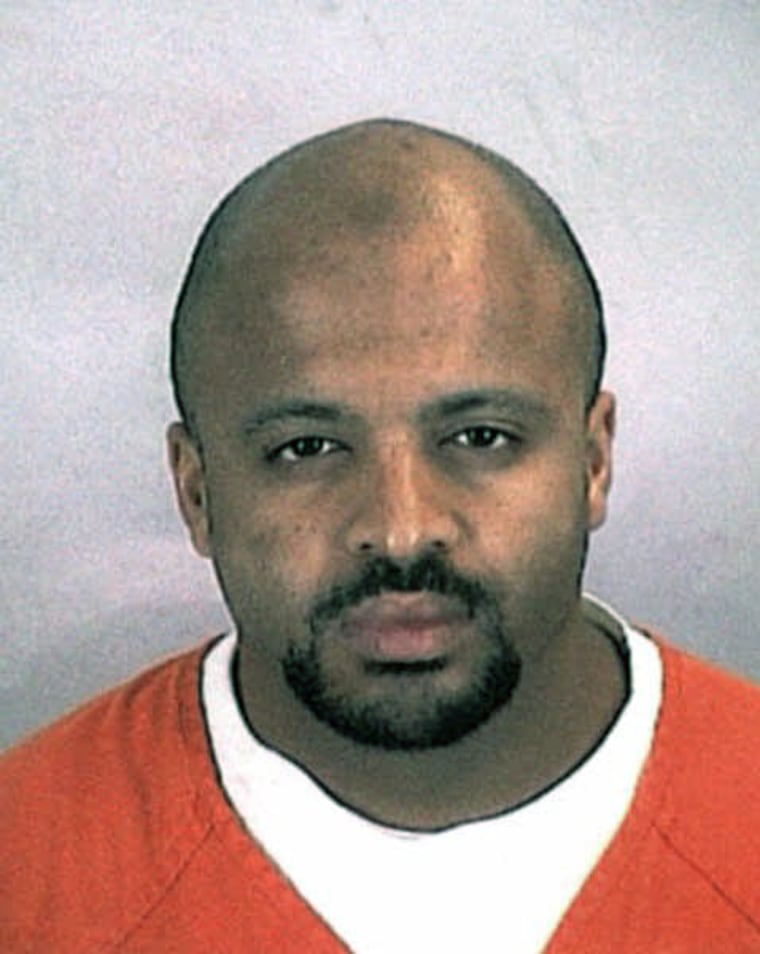Al-Qaida might have called off the Sept. 11 terrorists attacks on the United States had the plot’s masterminds known of the arrest of Zacarias Moussaoui, the alleged 20th hijacker, in the United States in mid-August 2001, according to the report issued by the 9/11 commission.
The 567-page report, the result of a 20-month investigation, details a host of missteps by government agencies and recommends the appointment of a new intelligence czar to help avoid future mistakes.
Moussaoui, a French-Moroccan radical who is believed to have been training as a pilot for the attacks, was arrested in Minnesota on Aug. 17 for overstaying his visa.
In a footnote to the commission’s report, issued Thursday, the investigators said that chief organizer Ramzi Binalshibh stated in a Feb. 14, 2004, interview with U.S. interrogators that had “KSM [Khalid Sheikh Mohammed, the al-Qaida operations chief] known that Moussaoui had been arrested, he would have canceled the attacks."
Based on the CIA interrogation of Binalshibh on Feb. 14, as well as others on Nov. 7, 2002, and Feb. 27, 2003, as well as an interrogation of Mohammed on July 2, 2003, the report draws the conclusion that "publicity about Moussaoui's arrest and a possible hijacking threat might have derailed the plot."
Tenet briefing
Moussaoui had been detained on an immigration violation after the FBI learned of his flight training, his radical Islamist beliefs and a ready but mysterious supply of cash.
In a report titled "Islamic Extremist Learns to Fly," the FBI briefed CIA Director George Tenet on Moussaoui on Aug. 23, 2001, but no information about Moussaoui's arrest was circulated.
According to the 9/11 report, Tenet told the commission that no connection to al-Qaida was "apparent to him at the time" and thus he did not discuss the matter with anyone at the White House or the FBI.
High-ranking FBI officials were not briefed at all on Moussaoui before Sept. 11.
Self-congratulatory
Binalshibh said that when, after the attack, he discussed Moussaoui's arrest, "KSM congratulated himself on not having Moussaoui contact the other operatives, which would have compromised the operation."
Binalshibh was arrested by Pakistani forces on the one-year anniversary of the Sept. 11 attacks after a gunfight with Pakistani police that left two other suspected al-Qaida members dead and five in custody.
Pakistan turned Binalshibh, a roommate of suspected ringleader Mohammed Atta in Hamburg, Germany, over to U.S. authorities within days and he was flown out of the country to an undisclosed location for questioning.
Mohammed was captured in a raid in Rawalpindi, near the Pakistani capital of Islamabad, on March 1, 2003. U.S. intelligence officials describe Mohammed as the third-ranking official of al-Qaida, behind bin Laden and Ayman Al-Zawahiri.
Key recommendations
The details of the glaring lack of communications between the various intelligence agencies bolstered one of the key recommendations of the 9/11 commission: a major overhaul of the nation’s intelligence agencies to stop another terror attack.
“If these reforms are not the best that can be done for the American people, then the Congress and the president need to tell us what’s better,” Republican commissioner James Thompson, a former Illinois governor, said at a news conference Thursday.
“But if there is nothing better, they need to be enacted and enacted speedily, because if something bad happens while these recommendations are sitting there, the American people will quickly fix political responsibility for failure,” he said.
The report does not blame Bush or former President Clinton for government missteps contributing to the attacks but did say they failed to make anti-terrorism a more urgent priority.
“We do not believe they fully understood just how many people al-Qaida might kill and how soon it might do it,” the panel said in its findings.
“The commission identified nine “specific points of vulnerability” in the Sept. 11 plot that might have led to its disruption had the government been better organized and more watchful. Despite these opportunities, “we cannot know whether any single step or series of steps would have defeated” the hijackers, the report concluded.
